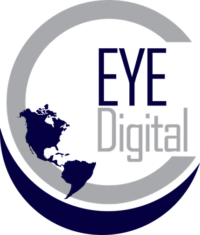Introduction
Artificial Intelligence (AI) has emerged as a groundbreaking technology that has disrupted industries across the board, and marketing agencies are no exception. In recent years, AI has revolutionized the way marketing agencies operate, providing powerful tools and insights that enable them to deliver more effective campaigns, enhance customer experiences, and optimize their overall performance. This article explores the profound impact of AI on marketing agencies, from automating routine tasks to unlocking new levels of personalization and predictive analytics.
- Automating Routine Tasks
One of the most immediate and noticeable impacts of AI on marketing agencies is its ability to automate routine and time-consuming tasks. AI-powered tools and platforms can take over tasks like data collection, email marketing, social media scheduling, and even basic content creation. This automation not only saves valuable time and resources but also reduces the risk of human errors, ensuring greater accuracy and consistency in marketing efforts.
For example, chatbots and virtual assistants powered by AI can handle customer inquiries and provide support around the clock, freeing up human agents to focus on more complex tasks and creative endeavors. Automation in marketing agencies streamlines operations, leading to increased efficiency and cost savings.
- Enhanced Customer Personalization
AI empowers marketing agencies to deliver hyper-personalized experiences to consumers. By analyzing vast amounts of data, AI algorithms can segment audiences based on various criteria, such as demographics, behavior, and preferences. This segmentation enables agencies to create highly targeted and relevant marketing campaigns, leading to higher conversion rates and customer satisfaction.
Personalization extends beyond email marketing; it also influences website content, product recommendations, and even advertising. AI-driven recommendation engines, like those used by Netflix and Amazon, can suggest products and services to individual users based on their past behavior, ultimately driving more sales and engagement.
- Predictive Analytics and Data Insights
AI’s data analysis capabilities are a game-changer for marketing agencies. Machine learning algorithms can process and analyze vast datasets to uncover valuable insights and trends that may have otherwise gone unnoticed. This data-driven approach enables agencies to make informed decisions, optimize marketing strategies, and allocate resources more effectively.
Predictive analytics, a subset of AI, allows marketing agencies to forecast future trends and customer behaviors. By analyzing historical data, AI can predict which marketing channels will yield the best results, helping agencies allocate budgets strategically. Furthermore, predictive analytics can assist in identifying potential churn, enabling agencies to implement retention strategies and minimize customer attrition.
- Content Creation and Optimization
AI has also stepped into the realm of content creation, providing marketing agencies with tools to generate and optimize content more efficiently. Natural language processing (NLP) algorithms can create written content, such as blog posts, product descriptions, and social media updates. While AI-generated content may lack the creativity and authenticity of human-written content, it can serve as a starting point, allowing human writers to refine and add a personal touch.
Additionally, AI can optimize content for search engines and social media platforms. It can suggest keywords, headlines, and posting schedules that are more likely to resonate with the target audience, improving content visibility and engagement.
- Marketing Attribution and ROI Measurement
Attributing the success of marketing campaigns to specific channels or tactics has long been a challenge for agencies. AI-driven marketing attribution models can help agencies track and measure the impact of each touchpoint in the customer journey accurately. This enables them to allocate marketing budgets more effectively and optimize campaigns in real time.
AI can also provide a clearer picture of return on investment (ROI). By analyzing data across various marketing channels and customer interactions, agencies can determine which campaigns are delivering the most value and adjust their strategies accordingly.
Conclusion
AI has transformed marketing agencies into data-driven powerhouses capable of delivering more efficient, personalized, and impactful campaigns. From automating routine tasks to providing deep data insights, AI has become an indispensable tool for agencies looking to stay competitive in the ever-evolving marketing landscape. As AI continues to evolve, marketing agencies that embrace and harness its capabilities will find themselves better positioned to meet the demands of the modern consumer and drive success for their clients.

